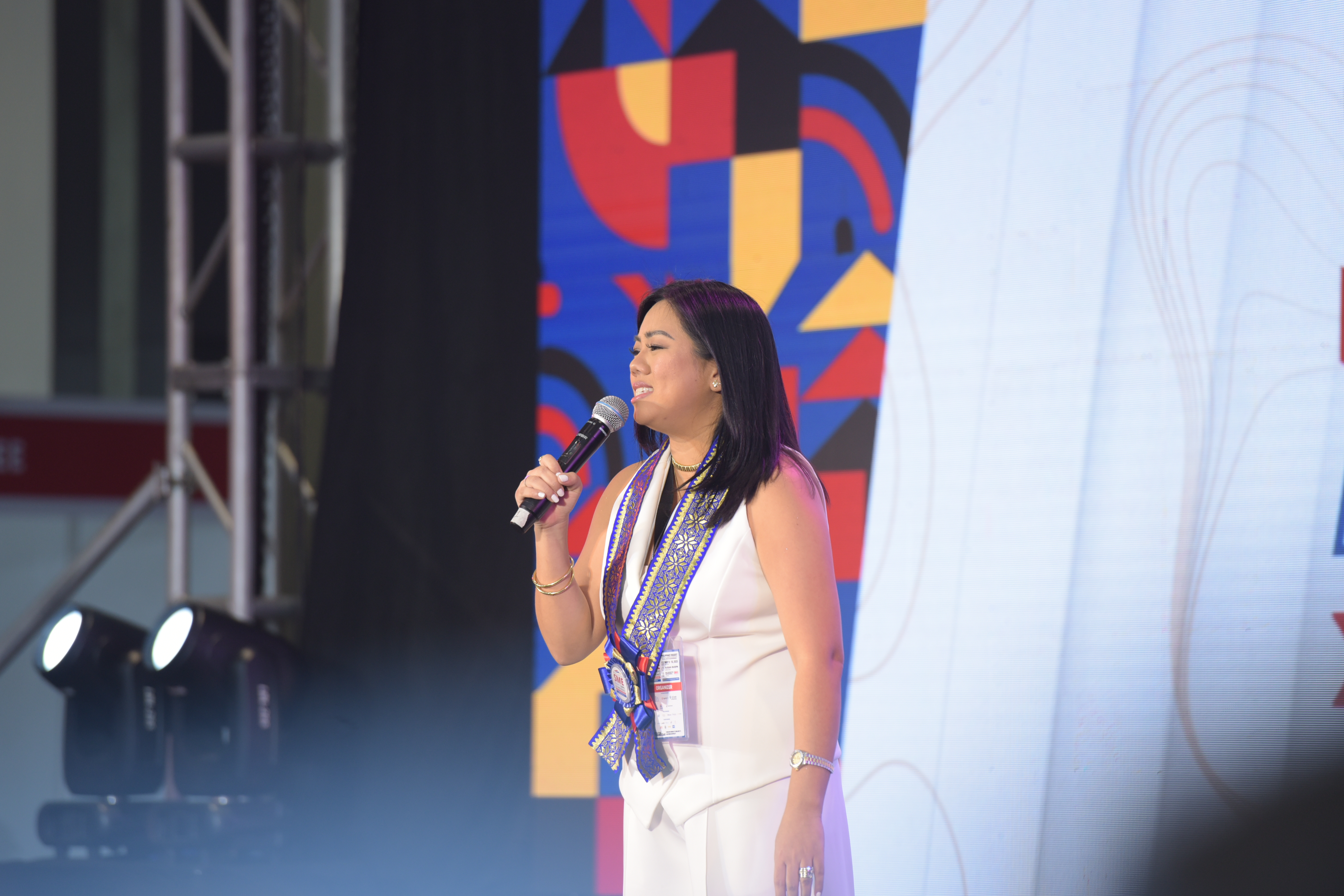Makati City, Philippines, 25 August 2018: UNAIDS Goodwill Ambassador for Asia and the PacificPia Alonzo Wurtzbach urged decision makers to address the causes that put young people at risk of HIV, speaking at the International Youth Day Conference organized by the United Nations Youth Association of the Philippines in collaboration with the United Nations Association of the Philippines, and held today at the University of Makati. “We live in a world where adolescents and young people, especially from key populations, are still left behind. We cannot fail to address their needs. I challenge the indifference and I call for action now,” said UNAIDS Goodwill Ambassador.
Every day approximately 230 young people are newly infected with HIV in Asia and the Pacific. In 2017, almost half a million young people between the ages of 15 to 24 years were living with HIV in the region. In the Philippines, young people account for 69% of new HIV infections and data indicates that there is a growing HIV epidemic among young men having sex with men. Young key populations (including gay men and other men who have sex with men, bisexual people, transgender people, sex workers and people who use drugs) are at a high risk of HIV acquisition due to rights violations, discrimination, exclusion, criminalization and violence.
This year’s theme for International Youth Day was Safe Spaces for Youth, highlighting the need of young people for safe spaces to come together, hang out and participate in decision making processes. This includes in healthcare settings, which should be places of safety, free from stigma, discrimination and violence. This is not always the case in Asia and the Pacific, where policies and attitudes remain barriers to youth-friendly HIV and sexual and reproductive health services. In the region, available data indicates that more than half of the countries requires parental consent for HIV testing for adolescents younger than 16 years old.
‘‘We need a critical change to respond to the dynamic shift of the HIV epidemic among young key populations, not only in the Philippines, but in Asia and the Pacific,” stressed Eamonn Murphy, UNAIDS Regional Director for Asia and the Pacific. “We need the innovation and creativity of young people in designing HIV interventions that work for them and, at the same time, support their leadership in challenging structural barriers in accessing health services, including parental consent requirements for adolescents and the lack of comprehensive sexuality education,” he added.
During her remarks at the International Youth Day Conference, UNAIDS Goodwill Ambassador Pia Alonzo Wurtzbach encouraged participants to advocate for young people’s participation in the AIDS response as leaders and agents of change and build strategic partnerships to end the AIDS epidemic. “We have miles to go to end AIDS in the Philippines and we need to equip young people with the right information and enable them to access services that are safe and responsive to their needs,” she concluded.
About the International Youth Day Conference
The International Youth Day Conference, titled Safe Spaces for Youth, is an initiative of the United Nations Association of the Philippines in collaboration with the United Nations Youth Association of the Philippines to raise awareness about issues that are important to youth, including health, HIV, gender sensitivity and inclusive environment. The conference was attended by more than 300 young people from different universities across the Philippines, as well as representatives of the local government, the United Nations and the media. Honorable Abigail Binay, City Mayor of Makati and Honorable Luis Campos, Second District Representative, welcomed the delegates.
About UNAIDS
The Joint United Nations Programme on HIV/AIDS (UNAIDS) leads and inspires the world to achieve its shared vision of zero new HIV infections, zero discrimination and zero AIDS-related deaths. UNAIDS unites the efforts of 11 UN organizations—UNHCR, UNICEF, WFP, UNDP, UNFPA, UNODC, UN Women, ILO, UNESCO, WHO and the World Bank—and works closely with global and national partners towards ending the AIDS epidemic by 2030 as part of the Sustainable Development Goals. Learn more at unaids.org and connect with us on Facebook, Twitter, Instagram and YouTube.






